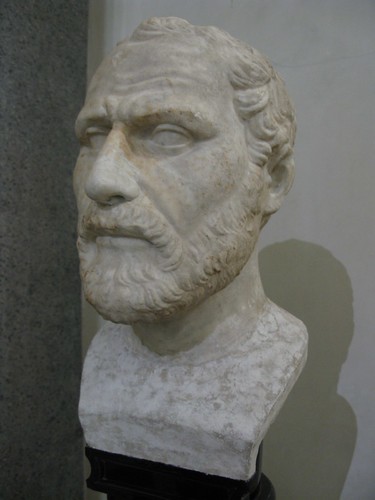Oratory was born during the so called “Golden Age of Eloquence” in ancient Greece, practiced by and large on the political stage to draw the attention of the kings and ministers to matters of the state that required instant attention. Public speeches on solemn or victorious occasions were made by master orators representing the throne. Speeches were written and delivered based on the occasion, primarily in an effort to reach out to the public and convey messages in a clear yet persuasive language to achieve the intended effect.
Public speakers of yesteryears starting from the much famed Pericles of Greece constantly redefined oratory practices, to include a larger perspective. He transformed the scope of a conventional Athenian funeral speech to glorify the greatness of the nation at large. On similar lines, Abraham Lincoln in his widely quoted Gettysburg Address focused on the larger problems of equality and freedom. Even Adolf Hitler was widely known for his persuasive speeches that had Germany spell-bound.
Simple or elaborate language, great public speakers have always been successful in reaching out to people with call for action that’s often been met with overwhelming response. Here are five best speakers in history who have created an everlasting impression in the minds of people, both past and present generations.

Demosthenes
Demosthenes, a master speaker and statesman hailing from Athens, is well known for his famous speeches persuading Greek rulers to rise in action against Philip II of Macedonia, who was a threat to the land. An ardent lover of Athens and its lifestyle, Demosthenes delivered 3 speeches known as “Philippics” intended to spur nonchalant Athenians to rise in arms to defend themselves. The speeches were so filled with scorn for inaction that the word ‘philippic’ is now a synonym for critical criticisms. Demosthenes overcame stuttering to stun Greece with his public speeches.
Abraham Lincoln
Gettysburg Address by Abraham Lincoln was more of a natural reaction of the brutalities of civil war, with the focus set on the greater cause rather than the war. Achieving liberty and equality was portrayed as a more effective means of honouring those killed during the war. The physical cemetery served as a memorial for their services. Just 272 words and 3 minutes to render, the speech questioned the ability of the American government or any government for that matter to ensure equality and liberty to all its citizens.
This simple, concise message with no unnecessary references to the war was penned en-route to Gettysburg. It probably did not reach the people instantly except a select few, too concise a message for too large a cause?
Winston Churchill
Winston Churchill was quite well-known for his rhetoric, using choicest language to get the message across effectively. As Prime Minister of Britain, Churchill delivered three prominent speeches. ‘‘Blood, Sweat and Tears’, the first ever speech to House of Commons as the Prime Minister of Britain during the Battle of France, reassured the public that the country was in safe hands. “I have got nothing to give other than blood, tears, toil, and sweat”, Churchill said urging the army to wage war against “lamentable catalogue of human crime”, calling for “Victory at all costs – Victory in spite of all terrors”. Precise words of commitment, cause and result characterise this maiden speech of Churchill as the Prime Minister. The second speech “We shall fight on the beaches” spurred withdrawing forces to re-engage with the enemy with renewed confidence, while the third piece ‘This was their finest hour’, outlined Nazi threat at the outset of the Second World War, calling British soldiers to action so that the entire world be saved from the ‘Dark Ages’ ahead.
Mahatma Gandhi
‘Quit India’ speech by Mahatma Gandhi best reflects the underlying cause of non-violent civil disobedience. Calling people of diverse religious beliefs to unite for a common cause, Gandhi was successful in leading India towards democracy. The movement urged Indians to fight sans weapons, with their strength of will being the only weapon to be used in this struggle. India lost innumerable lives in the process, still went strongly ahead under the guidance of Gandhi to eventually achieve its independence from British colonial rule. Based on simple yet powerful language, reaching out to explain the long-term impact of foreign rule and need for democracy, Gandhi’s speeches were for the common man in India.
Martin Luther King Jr.
Elaborating on the same lines of Lincoln’s quest for equality and liberty, King rose against the continuing discrimination of America’s black population, even a century after slavery was officially abolished. Rallying for equal opportunities, King’s speeches often brought a ray of hope that a better future was in store. King’s speech – “I Have a Dream” reflects the dream of an entire race, crying out for equality. Simple and clear, his moving speeches ring in the agony and anticipation of the affected lot.
[IMAGE ATTRIBUTION]
Courtesy of thisisbossi – http://www.flickr.com/photos/thisisbossi/ Courtesy of loomingy1 – http://www.flickr.com/photos/loomingma/ Courtesy of Ben Sutherland – http://www.flickr.com/photos/bensutherland/ Courtesy of Strt – http://www.flickr.com/photos/42956036@N03/ Courtesy of KellyB – http://www.flickr.com/photos/foreverphoto/
Jonathan is a freelance writer who loves admiring those with oratory prowess even if said exposure happens mainly in London based meeting rooms..!
